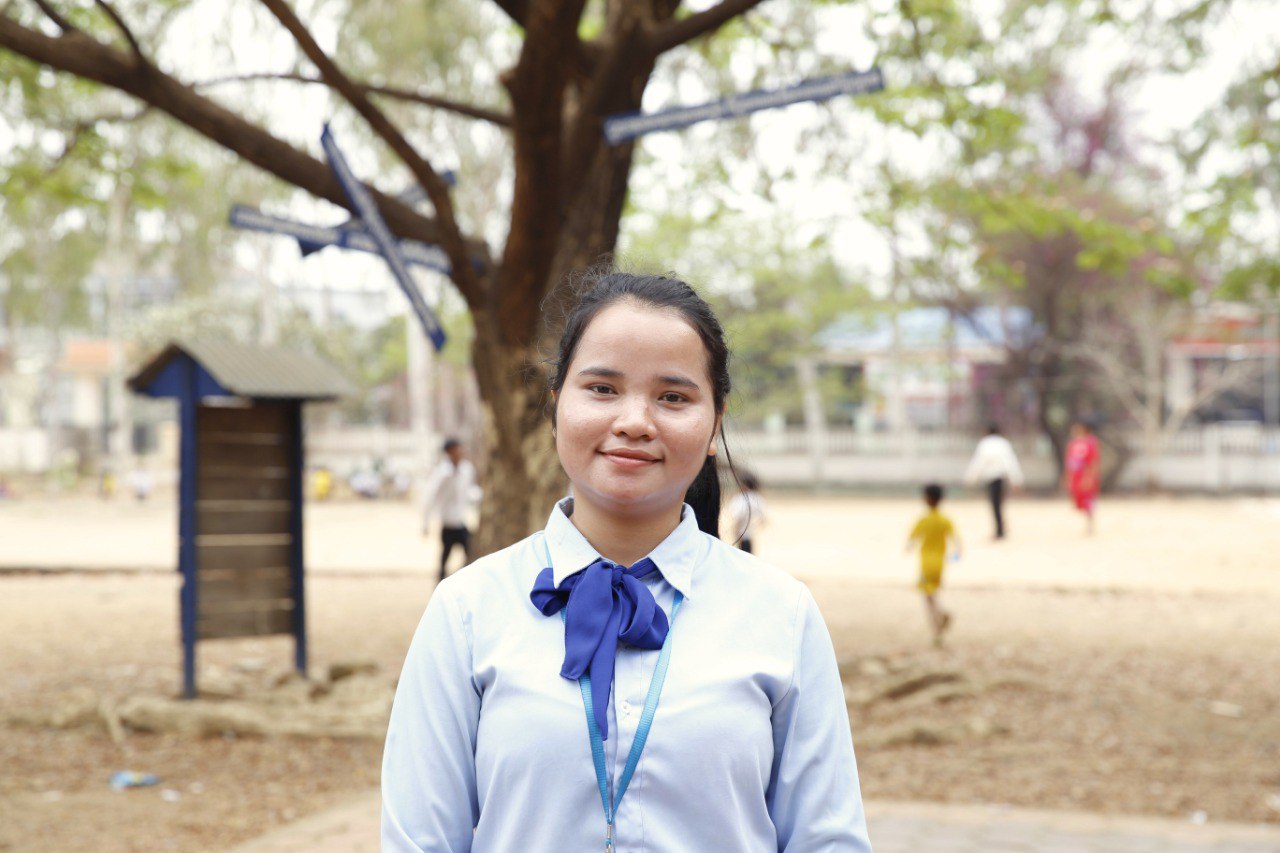Mean, an Indigenous Jarai teacher trainee from Ratanak Kiri, Cambodia, is a firm believer in the power of multilingual education. As someone who grew up learning only in Khmer, Mean is delighted that she will be able to stay connected to her cultural heritage and deepen her understanding of Jarai through her career in teaching.
For Mean, teaching in both Khmer and Jarai is essential, as it allows children in her community to learn in a language they are comfortable with, ensuring that they are not discouraged or left behind because of language barriers. “It’s better to be able to understand one language than not at all,” she says. Mean is passionate about teaching and empowering young children in her community to feel confident in both Khmer and Jarai, so that they can embrace their cultural heritage while still accessing formal education that is compulsory for all Cambodian children.
“I love teaching and I want to teach young children in my community. I love children, and I also love this career path. I think there will be more students coming to school if I teach them in our language because they can use whichever language they feel most comfortable speaking.”
Mean is excited about the Professional Certificate on Multilingual Education program, which she believes can help students “not to forget their Indigenous language and not to give up on education.” She is aware that exclusive Khmer language instruction can be difficult for Indigenous children since they may not have a strong foundation in the language, which can make learning challenging.
Mean sees multilingual education as pivotal in “protecting, promoting, and advancing cultural identity”. Mean believes it is critical to preserve her culture and traditions, “It would be really regretful if we were to lose our own language so we must work together to protect and preserve our language”.
As an Indigenous woman, Mean is passionate about empowering girls in her community to go to school. She believes that the multilingual education program can help girls avoid being constrained to household chores. Mean explained that if girls can learn in a language, they’re familiar with, they are more likely to engage, and stay committed to their education and sees education as a key tool for empowering women to become leaders in their communities.
The Jarai are one of the few Indigenous groups in Cambodia that have a matriarchal culture, Mean explains that women can play a key part in preserving and promoting cultural identity, “women support the community in many ways. They can preserve and promote our culture and traditions from village to village and community to community. I always see women as the leading figures in our community.”
“Women play many roles in the family too; they are the trainer and teacher of our culture and I think now our community is believing more in the equal rights for both boys and girls to receive education” Mean added.
As Mean finishes her training, she is excited to spread the benefits of multilingual education in her community and empowering young children to feel confident in their cultural heritage while still accessing modern education.

